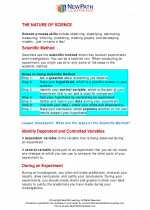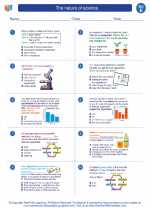Population
Population refers to the group of individuals of the same species that live in the same geographical area and are capable of interbreeding. It is an important concept in ecology and is studied in various scientific fields, including biology, sociology, and economics.
Key Concepts
- Population Size: The total number of individuals in a population at a specific time.
- Population Density: The number of individuals per unit area or volume.
- Population Distribution: The pattern of where individuals are located within a given area.
- Population Growth: The change in population size over time, which can be influenced by birth rates, death rates, immigration, and emigration.
- Population Structure: The composition of a population in terms of age, gender, and other demographic factors.
Factors Affecting Population Size
There are several factors that can affect the size of a population:
- Birth Rate: The number of births per 1,000 individuals in a given time period.
- Death Rate: The number of deaths per 1,000 individuals in a given time period.
- Immigration: The movement of individuals into a population from another area.
- Emigration: The movement of individuals out of a population to another area.
- Carrying Capacity: The maximum population size that an environment can support based on the available resources.
Population Dynamics
Population dynamics refers to the study of how and why populations change in size and structure over time. This field of study considers various factors such as competition for resources, predation, disease, and environmental changes that can influence population growth and decline.
Human Population
The study of human population is particularly important due to its impact on the environment, economy, and society. It involves examining population growth trends, demographic transitions, and the implications of overpopulation or underpopulation in different regions of the world.
Study Guide
Here are some key topics and questions to consider when studying population:
- Define the term "population" and explain its significance in ecology and other scientific disciplines.
- Discuss the factors that can affect population size and growth, and provide examples of each factor.
- Explain the concept of carrying capacity and its relevance to population dynamics.
- Compare and contrast population density and population distribution, and describe the methods used to study each aspect.
- Analyze the impact of human population growth on the environment and discuss potential solutions to address population-related challenges.
By understanding the principles of population and its dynamics, we can better comprehend the interactions between organisms and their environment, as well as the social and economic implications of human population trends.
[Population] Related Worksheets and Study Guides:
.◂Science Worksheets and Study Guides Fifth Grade. The nature of science

 Worksheet/Answer key
Worksheet/Answer key
 Worksheet/Answer key
Worksheet/Answer key
 Worksheet/Answer key
Worksheet/Answer key
